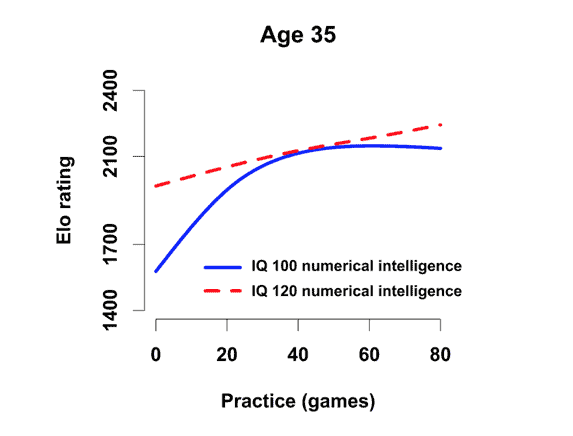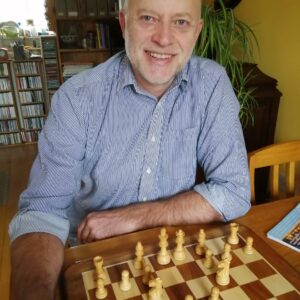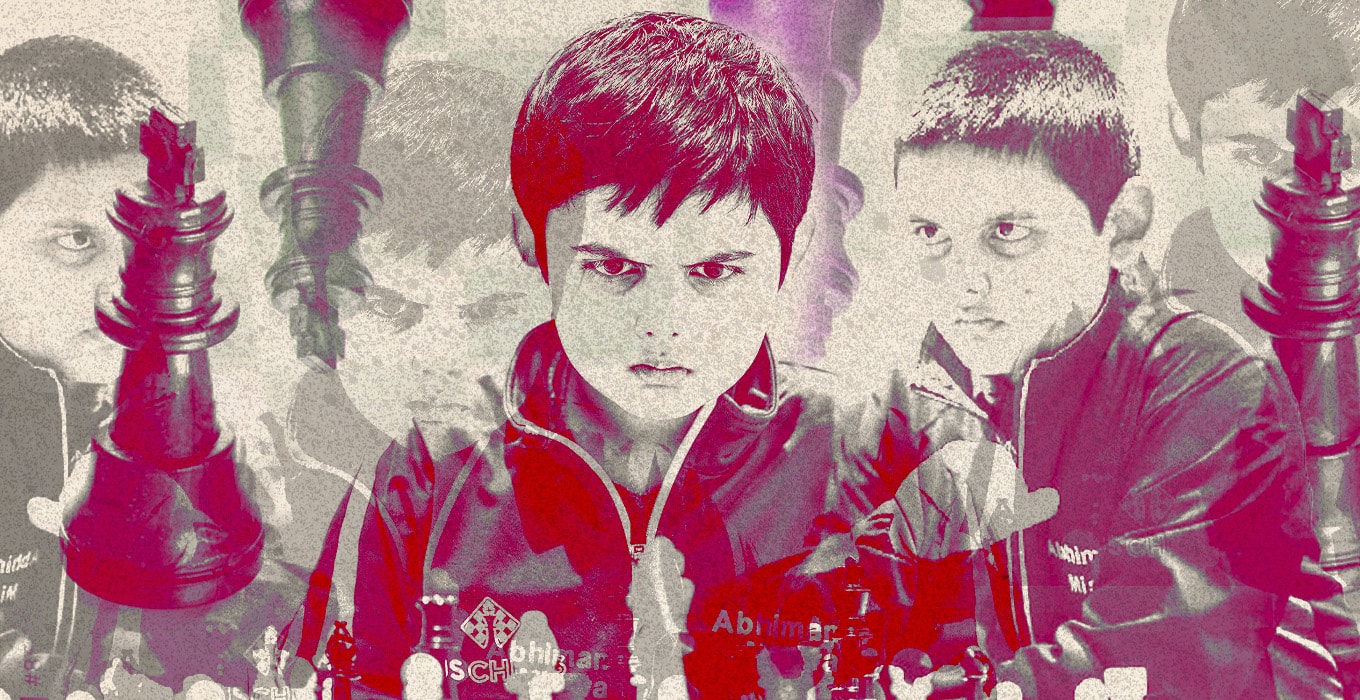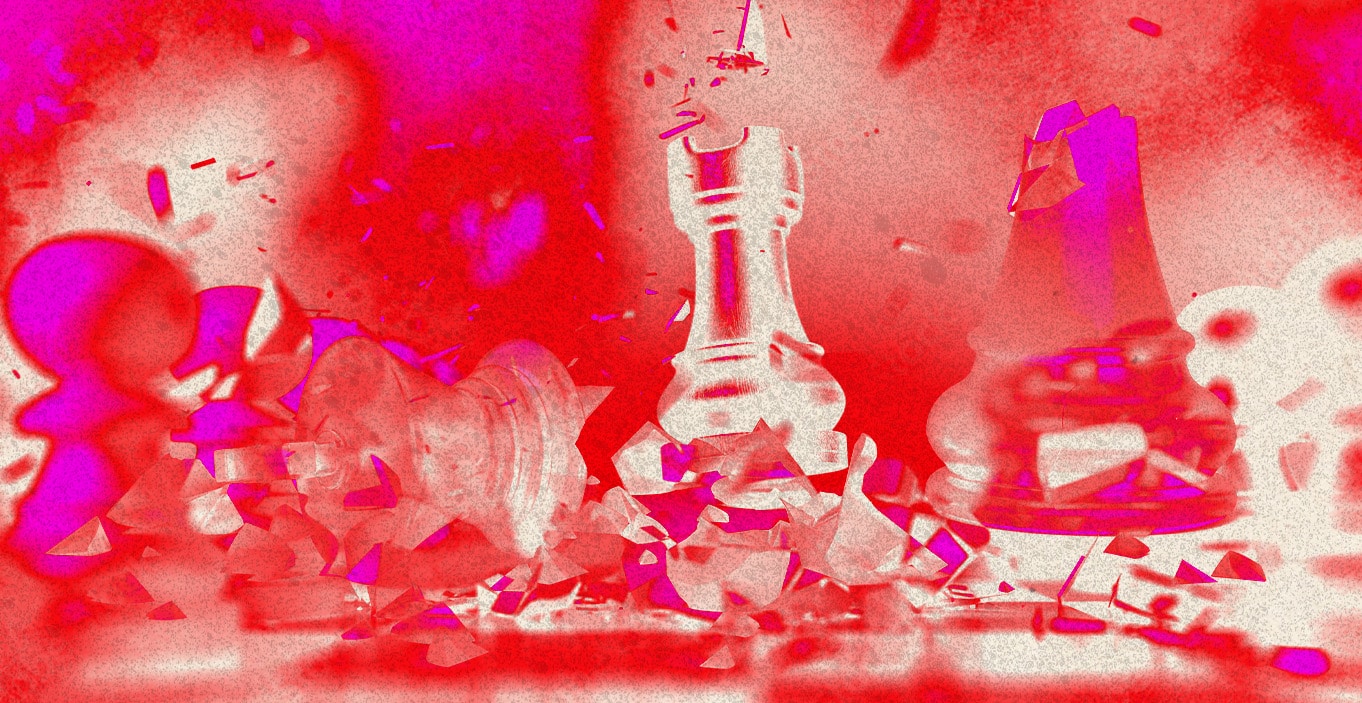Chess Science in the Making
We have a treat in store for Chessable users interested in the science of chess development, in the form of a post by three of the most distinguished international researchers in the field of chess and expertise. Merim Bilalic, Roland Grabner, and Nemanja Vaci provide a succinct and nuanced summary of current knowledge about the interactional effects of practice and intelligence on chess performance across the age span – much of this arising from their own studies. Going well beyond a simplistic nature (IQ) versus nurture (practice) dualism, they show how each variable plays a differentially important role at different stages of a player’s development. Three highlights:
- Practice leads to visible gains for all players in their early immersion in the game – of particular significance to educators using chess as a vehicle for teaching agency – eg about the efficacy of practice.
- Over time, practice plays a powerful mitigating role, even compensating for a relative intellectual deficit in competent adult players. So keep working at your Chessable review schedule, knowing that the amount you practice is highly predictive of your ultimate chess skill.
- Both when learning the game and as you age and enter your ‘golden years’ it helps to be both intellectually smart and assiduous in your practice!
Beyond this, I can now invite all our users to take advantage of the opportunity to take part in these researchers’ current and impressively ambitious study, looking not only at the influence of practice and intelligence on chess expertise, but also at such factors as personality, emotions and motivation. For a time investment of well under an hour you could receive feedback that informs your own future practice as well as enjoy the satisfaction of knowing you’ve contributed to our growing understanding of the factors influencing chess development. We have the opportunity here to transcend simply learning about chess science, but actually making it.
Professor Barry Hymer
Chief of Science
Intelligence and Practice in Chess Development
Merim Bilalic, Roland Grabner and Nemanja Vaci
Most people believe that both intelligence and practice are necessary to master a complex intellectual game such as chess. Arguably, there are very few laypeople, let alone researchers, who would argue that either of these factors does not play a crucial role. Yet both laypeople and researchers spend an extraordinary amount of time arguing for the supremacy of one factor over the other. This is an unhelpful and unproductive discussion in our opinion (Bilalić, 2017). Instead of focusing on the differences, we should investigate how these major factors complement each other. Here we present one of the first studies to look into how intelligence and practice come together to enable the development of chess skill over the lifespan (the full text of the study can be found here).
The research presented here is just the beginning of our research project, and is not limited to the roles of intelligence and practice in chess development. We are currently also investigating the role of other factors, such as personality, emotions, and motivation. We would greatly appreciate your help in gaining insight into the chess development process. The chess development survey takes 30-45 minute to complete and we offer individual feedback, which may help you understand factors influencing your own chess development.
Chess Development Study:
Webpage: https://chess-study.uni-graz.at/en/
Survey links: https://chess-study.uni-graz.at/en/study-participation/
Facebook: https://www.facebook.com/ChessDevStudy/
Twitter: https://twitter.com/ChessDevStudy
Intelligence in Chess
Intellectually more able people are quicker to grasp relations between objects in an environment, which gives them an edge when it comes to mastering a complex environment such as chess (Deary, 2011). Indeed, the studies point to intelligence being an important factor in chess skill, but the picture is more nuanced than a simple association across chess players. It turns out that intelligence is particularly important when people start learning the game – children and amateur samples regularly show robust associations between their chess skill and intelligence. In contrast, among established adult players, particularly expert level players (above Elo 2000), intelligence does not seem to influence the level of chess skill (Burgoyne et al., 2016).
Practice in Chess
One of the reasons for this differing influence of intelligence is the amount of practice people have accumulated. Theoretically, it makes sense that intellectually more able people will learn more and better than their intellectually less able peers when they are given the same amount of time. Practically, however, the amount of time that one invests in an activity depends on many different factors. Over the years, these differences in practice accumulate and possibly override other factors such as intelligence. In children and amateurs, where the differences in accumulated practice are inevitably small, intelligence may still exert considerable influence. In adults and established players, who had been playing chess for a long time, more practice may more than compensate for lower intellectual capacity. In general, the amount of practice is highly predictive of chess skill (Macnamara et al., 2014).
Joint Influence of Intelligence and Practice in Chess Development
In our study (Vaci et al., 2019), we tracked ninety chess players of differing skill levels for almost 20 years. They were of different ages, which allowed us to investigate not only the beginnings and peaks of chess skill, but also the later stages of the chess career.
We then checked how intelligence and practice influence chess skill across the lifespan on their own. For Intelligence we decided to investigate numerical intelligence, which measures the ability to manipulate numbers and has been proven to predict chess skill better than other types of intelligence, such as verbal or spatial intelligence (Burgoyne et al., 2016; Gobet & Campitelli, 2007). The number of tournament games in a year was taken to be an approximation of practice. While it is clear that tournament games do not capture all possible practice, it has been shown that they are highly correlated with the total amount of practice activity (Howard, 2012).
We take two hypothetical group of players, one of average Intelligence (IQ 100) and another of superior Intelligence (IQ 120), to check how the development of the players’ chess skill progresses. The figure below shows that, unsurprisingly, more intellectually able players (IQ 120) tend to be better than their average colleagues (IQ 100) when practice is held constant, that is, when they played the equal number of games. However, the differences are particularly pronounced at the peak, around 30 years of age, and particularly later in the career, around 60 years.
We can also take two hypothetical groups of players who practice more intensively, 60 tournament games a year, and less intensively, 20 tournament games a year, while keeping their intelligence the same (average). In contrast to Intelligence, how much players practised had the largest influence at the beginning of the career, between 10 and 30 years, and practice influence starts to wane afterwards as the career progresses (see the graph below).
More importantly, we can also see how intelligence and practice complement each other. Early, at age 20, intellectually more able players develop chess skill more quickly given the same low to moderate levels of practice. However, once players start practising intensively, for more than 20 games a year, the influence of Intelligence diminishes. In other words, the intelligence disadvantage can be easily compensated for with practice at the early stages of the chess career.
Once we move to age 35, when the players reach peak performance, we find a similar pattern of results. Lower levels of practice produce even greater advantages for intellectually able players than at age 20, but the advantage again vanishes as the amount of practice increases.
The situation is different in later stages, when players do not necessarily improve, but rather maintain their expertise. The differences in Intelligence do not decrease with practice as before, but increase instead. In other words, the amount of practice can’t compensate for the differences in intelligence in the later stages.
Conclusions
The not very surprising conclusion is that both intelligence and practice are important factors in chess skill development. On their own, however, they can only explain certain aspects of development. For example, practice has its strongest effect in the beginning of expertise development, whereas intelligence’s strongest effect is at the peak and in the later stages. Together, they explain the changes across the whole life span much better than they do on their own.
What does this pattern of results mean for chess education? The fact that practice has its strongest effect in the beginning of expertise development means that success is guaranteed even with little practice at the beginning. Small amounts of practice will inevitably lead to visible improvements. This makes chess a valuable tool for the development of healthy self-esteem in young children, for example.
Once people acquire more knowledge and become better at chess, practice often will not lead to noticeable improvement as it becomes more difficult to discover new ways of dealing with challenging situations that would improve performance. This is where other aspects, such as certain kinds of practice, long-term motivation, and Intelligence, come to the fore.
Finally, the results point to the importance of practice and intelligence in old age. It is well known that (intellectual) activity is beneficial in shielding against intellectual deterioration (Baumgart et al., 2015). Chess is certainly an activity that has all the components necessary for slowing intellectual decline in old age. Our results, however, indicate that practice may be particularly beneficial when combined with higher levels of intellectual capacities. In other words, intelligence and practice may have synergetic effects when it comes to fighting age-related phenomena such as dementia.
Chess Development Study
Our understanding of the individual factors and their interplay in chess development is in its early stages. The research presented here, for example, examined only practice and intelligence. It is certain that many other factors are important in the long road to excellence in an intellectual activity such as chess. We would greatly appreciate it if you would be willing to help us in this process (and possibly gaining insight into your own chess development) by filling in this 30-45-minute survey:
https://chess-study.uni-graz.at/en/study-participation/
Bios

Merim Bilalić is Professor of Cognitive Psychology at Northumbria University, Newcastle. He received his DPhil in Experimental Psychology from Oxford University, and has subsequently held research and teaching positions at Humboldt University, Brunel University, Tübingen University, and Klagenfurt University. His research on the (in)flexibility of (chess) experts won the Award for the Outstanding Doctoral Research Contribution to Psychology from the British Psychological Society in 2008. His latest book, The Neuroscience of Expertise, was published by Cambridge University Press in 2017. He holds the FIDE Master title and was the junior (U20) champion of Bosnia and Herzegovina in 1996.

Roland Grabner is Professor of Educational Neuroscience at the Institute of Psychology, University of Graz, Austria. Before this position, he worked as postgraduate researcher at the Max-Planck-Institute for Human Development in Berlin, Germany, and at the Institute of Behavioral Sciences, ETH Zurich, Switzerland. From 2012 to 2014 he was professor of Educational Psychology at the University of Göttingen, Germany. His main research interests lie the cognitive and neural underpinnings of individual ability differences and learning with a special focus on the domain of mathematics. In addition, he works on expertise development, knowledge acquisition in bilingual learning settings, and the potential of non-invasive brain stimulation to enhance learning. In 2007, Roland H. Grabner received the Scientific Award of the Karpow Chess Academy for his psychological and neurophysiological research on chess expertise.

Nemanja Vaci is a Lecturer/Assistant Professor at the Department of Psychology, University of Sheffield, UK. He did his PhD at Alpen-Adria University in Klagenfurt, Austria, while he worked as a postdoctoral researcher at the Department of Psychiatry, University of Oxford, UK. His research focuses on understanding and describing the changes in performance across the lifetime. He is interested in skill acquisition and expertise, as well as investigating how knowledge and abilities can protect the age-related declines in performance.
References
Baumgart, M., Snyder, H. M., Carrillo, M. C., Fazio, S., Kim, H., & Johns, H. (2015). Summary of the evidence on modifiable risk factors for cognitive decline and dementia: A population-based perspective. Alzheimer’s & Dementia, 11(6), 718–726. https://doi.org/10.1016/j.jalz.2015.05.016
Bilalić, M. (2017). The neuroscience of expertise. Cambridge University Press.
Burgoyne, A. P., Sala, G., Gobet, F., Macnamara, B. N., Campitelli, G., & Hambrick, D. Z. (2016). The relationship between cognitive ability and chess skill: A comprehensive meta-analysis. Intelligence, 59, 72–83.
Deary, I. J. (2011). Intelligence. Annual Review of Psychology, 63(1), 453–482. https://doi.org/10.1146/annurev-psych-120710-100353
Gobet, F., & Campitelli, G. (2007). The role of domain-specific practice, handedness, and starting age in chess. Developmental Psychology, 43(1), 159.
Howard, R. W. (2012). Longitudinal effects of different types of practice on the development of chess expertise. Applied Cognitive Psychology, 26(3), 359–369.
Macnamara, B. N., Hambrick, D. Z., & Oswald, F. L. (2014). Deliberate practice and performance in music, games, sports, education, and professions: A meta-analysis. Psychological Science, 25(8), 1608–1618.
Vaci, N., Edelsbrunner, P., Stern, E., Neubauer, A., Bilalić, M., & Grabner, R. H. (2019). The joint influence of intelligence and practice on skill development throughout the life span. Proceedings of the National Academy of Sciences, 116(37), 18363–18369. https://doi.org/10.1073/pnas.1819086116







